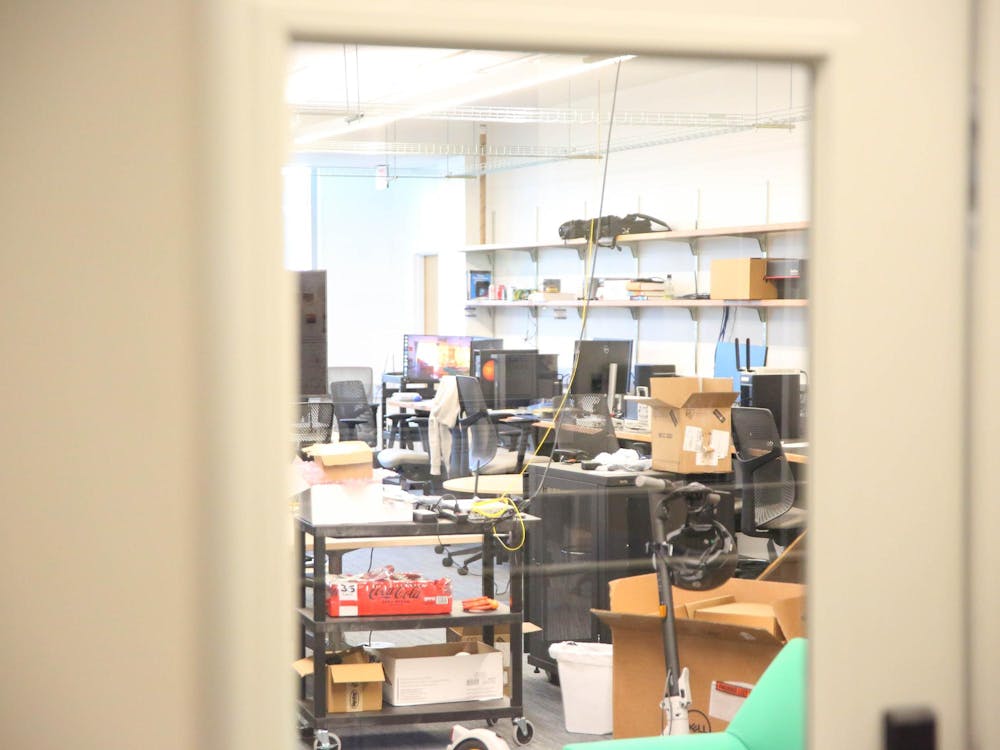Since its development by Sheila Patek, Alexander Hehmeyer professor of biology, online research job board Muser has helped connect thousands of students with principal investigators (PIs) of research projects.
Many PIs have positive views of Muser, believing it puts students on equal ground regarding research project exposure and the application process.
During the fall 2023 season of applications, 590 students applied to 62 projects, and the platform has seen more applications since October. Nearly 1,000 research mentors across Duke have used the platform since the program was founded, and over 20% of all Duke undergraduates and over 40% of first-year students used the platform between 2020 and 2022.
“I get students who I wouldn't normally have because before it was more or less on word-of-mouth in terms of the announcements that fellow faculty would make in their classes and students talking to other students,” said Edward Levin, professor of psychiatry and behavioral sciences. “And I'm sure there are people out there who didn't have those connections.”
Associate Professor of Pediatrics Mai ElMallah agrees, praising the platform for cultivating “more of an equitable process.”
“We get to see and have a lot more variety of students,” said ElMallah. “We get more people that are intellectually curious, that want to come and contribute to science. [We’re] always getting fresh ideas from these students.”
As a result, PIs have expressed satisfaction regarding the quantity, variety, as well as level of interest that they see in applicants.
Ashutosh Kotwal, Fritz London distinguished professor of physics, also noted that compared to faculty pages on department websites, Muser displays multiple projects that a PI may be working on.
“Students can read much more detail on each one and say, ‘I like this one. I'm not interested in that one, but I'm interested in this one,’” Kotwal said. “So I think the level of detail that Muser has allowed me to get out to the students on my separate projects is much more than anything else we’ve tried in the past.”
PIs have also offered some suggestions for improvement in the future.
ElMallah states that she believes the platform could be more user-friendly moving forward, as downloading applications off of the site can be “cumbersome.”
“Right now we have to download every single personal statement, every single application separately. It'd be really great if we could just download it all in bulk so we can review it all,” she said. “I think [they can] just spend some time with people that use Muser and see how to make it even easier.”
Levin also believes that Muser should provide opportunities for students to gain first impressions and understanding of their role in the lab before jumping in headfirst. He proposed allowing students to come to labs and shadow people to understand if they would like to continue with the project for a semester, avoiding the possibility of a "rude awakening" about the day-to-day realities of research.
Overall, however, PIs believe that more labs and students should know about this platform, and are optimistic that Muser will continue to grow in the future. Patek has received multiple research grants from the National Science Foundation, which help fund program developments.
“I think it's still gonna be a super helpful platform," ElMallah said. "... As more PIs have caught on, there'll be more positions for more students, which is going to be great.”
Get The Chronicle straight to your inbox
Signup for our weekly newsletter. Cancel at any time.
Winston Qian is a Pratt sophomore and health/science editor for the news department.

